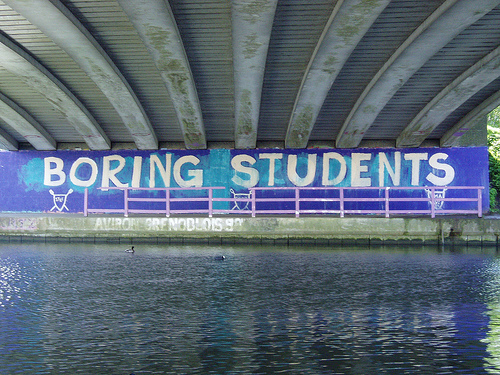1.4 A boring lesson makes me bored (Ed/ing adjectives)
"-Ed" and "-ing" endings are not only used to form verb tenses but also to form adjectives. This kind of adjectives would be compound of a verb (usually the verb be) and one of these
|
|
endings but, be careful because each one has a different meaning. Let's see them!.
- Adjectives ending in "-ed" describe emotions. These adjectives usually correspond to those ending in "-ado", "-edo", "-ido" in Spanish and follow the verb "be" meaning "estar".
Example: John is interested in art (John está interesado en el arte).
- Adjectives ending in "-ing" describe a specific characteristic of a person or a thing. These adjectives do not always have an equivalent in Spanish and they follow the verb "be" meaning "ser".
Example: John is an interesting person (John es una persona interesante).
IMPORTANT: Let's compare the difference when we use one adjective or the other:
Steve is embarrassed (Steve está avergonzado).
Steve is embarrassing (Steve es vergonzoso).
Rellenar huecos
Now, let's see if you have acquired the contents studied. Complete the sentences with the corresponding adjective:
Actividad desplegable
Actividad
MAKE + PERSON + VERB/ADJECTIVE
A boring lesson makes me bored = It causes me to feel bored
We use make + person/thing + infinitive (without TO) to talk about what someone/something is obliged or caused to do.
We use make + person/something + adjective (without TO) to talk about the effect something has on another person/thing.
If the person/thing is a pronoun, we use the object pronoun (me, you, him, her, it, us, them).
It makes me happy. They made their teacher listen.
Actividad desplegable
Choose the correct phrase for each sentence.


